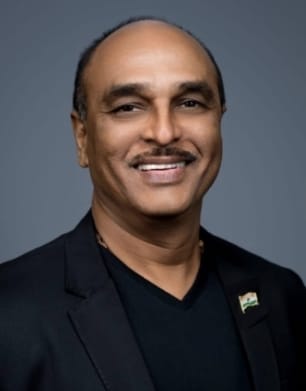It is close to 3 decades now that Surgical Oncology emerged as an important specialty of surgical practice in India. First CME programme in Oncology was held by Tata Memorial Hospital in 1975 attended by 200 surgeons from all over the country. Success of this programme led Dr B Ramamurthy, the then President of Association of Surgeons of India (ASI) to invite Dr Ashok Mehta to organize first CME in Oncology at Ahmedabad Conference in December 1975. Dr Ashok Mehta wrote to the ASI for starting Oncology Section of ASI after success of the CME. A resolution was passed and Oncology Section was created at the Annual ASI Conference in Delhi in 1976.
Know More

Dear Colleagues, Members of IASO, and Esteemed Friends in the Field of Cancer Surgery,
At the outset, I am deeply honored to assume the role of President of IASO, an organization that has been the cornerstone of surgical oncology in India since its formation in 1977. I am grateful to the entire IASO fraternity for their confidence and trust.
This year holds special significance as IASO enters its Golden Jubilee Year (1977–2026) — marking five decades of excellence, education, and evolution in surgical oncology. During these years, IASO has united generations of onco-surgeons, fostered academic growth, and built a strong foundation for multidisciplinary cancer care in our nation. As we celebrate this historic milestone, we also renew our collective commitment to strengthen and expand the reach of surgical oncology across India.
With over three decades in surgical oncology and leadership as Medical Director and Head of Surgical Oncology at Basavatarakam Indo American Cancer Hospital & Research Institute, Hyderabad, I combine clinical excellence, academic expertise, and a steadfast commitment to advancing surgical oncology in India.
Vision & Priorities
A Call to Action
To each surgeon reading this message: I invite you to actively participate in IASO’s mission — attend our meetings, contribute to our journal, mentor a younger colleague, undertake research, and serve as ambassadors of quality cancer surgery in your region.
As IASO celebrates its Golden Jubilee (1977–2026), we not only look back with pride at our achievements but also look forward with purpose — to build upon this legacy with innovation, integrity, and compassion.
Cancer remains one of the greatest challenges to health in our country. With its legacy of over fifty years, IASO is well-placed to lead the transformation of surgical oncology in India. Together, we will strive to raise the standard of care, expand access, enable innovation, and uphold the highest ethics of our specialty.
I look forward to working with you, learning from you, and together making the coming years a chapter of growth, excellence, and meaningful impact for IASO and for the countless patients we serve.
With profound gratitude,
Dr T Subramanyeshwar Rao
President IASO
Chairman Academic Council
Medical Director, Basavatarakam Indo American Cancer Centre, Hyderabad

Indian Association of Surgical Oncology (IASO)
Dear Members, Colleagues, and Friends,
It is a privilege and an honour to serve as the Honorary Secretary of the Indian Association of Surgical Oncology (IASO) — a dynamic professional body representing the collective strength, knowledge, and commitment of surgical oncologists across India. As IASO enters its Golden Jubilee Year (1977–2026), we stand at a moment of pride and reflection — celebrating five decades of dedication to advancing cancer care, education, and research. From its humble beginnings to becoming a nationally recognized academic and professional force, IASO’s journey embodies the spirit of excellence, collaboration, and service.
Our 50-year milestone is not just a celebration of the past — it is a reaffirmation of our shared vision for the future. As we look ahead, our focus will be on enhancing academic opportunities, strengthening training programs, and forging national and international collaborations that empower our members and improve patient outcomes. We aim to continue shaping the standards of surgical oncology education, research, and practice across the country.
A cornerstone of our efforts will be to foster a culture of diversity, equity, inclusion, and belonging (DEIB) — ensuring that every member of our community, regardless of background or experience, feels valued, respected, and inspired. Embracing diversity in thought, training, and perspective enriches our association and strengthens the compassion and quality of care we deliver.
In this landmark year, we are also committed to expanding IASO’s digital and academic footprint — transforming our website into a vibrant platform for knowledge exchange, scientific updates, and member engagement. I warmly invite every member to contribute ideas, share expertise, and participate actively in our jubilee programs and scientific initiatives.
Together, as we celebrate 50 years of IASO, let us honour our legacy while embracing innovation, inclusion, and excellence — united in our mission to advance the field of surgical oncology and improve cancer outcomes for all.
Warm regards,
Dr. Narendra Hulikal
Indian Association of Surgical Oncology (IASO)
Registered office : D 57/58, B 5 Kasturba Nagar, Sigra, Varanasi (UP)
Temporary Camp Office : Room No - 244, DrBRA-IRCH, AIIMS, New Delhi - 110029
© IASO India. All Rights Reserved.